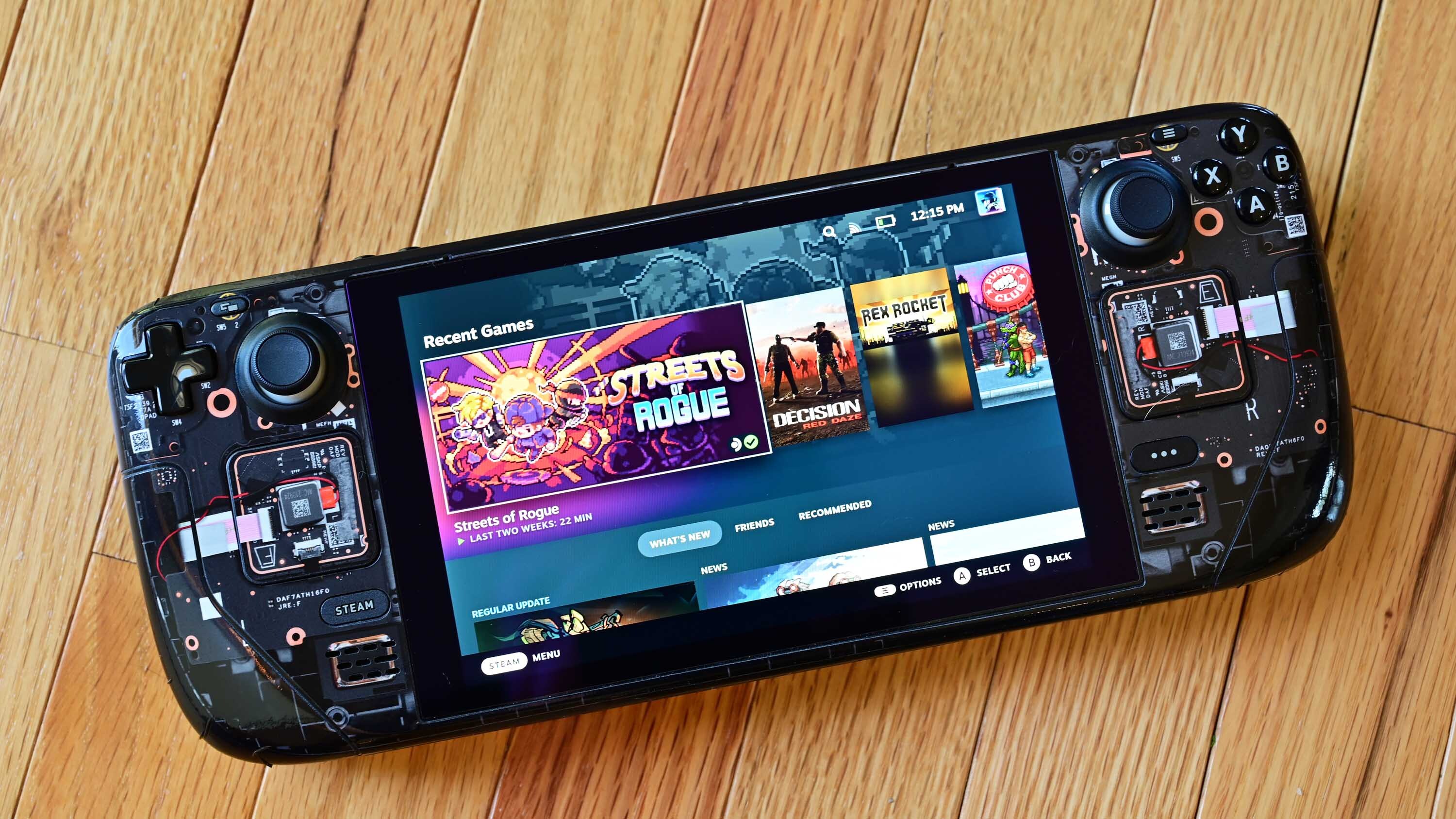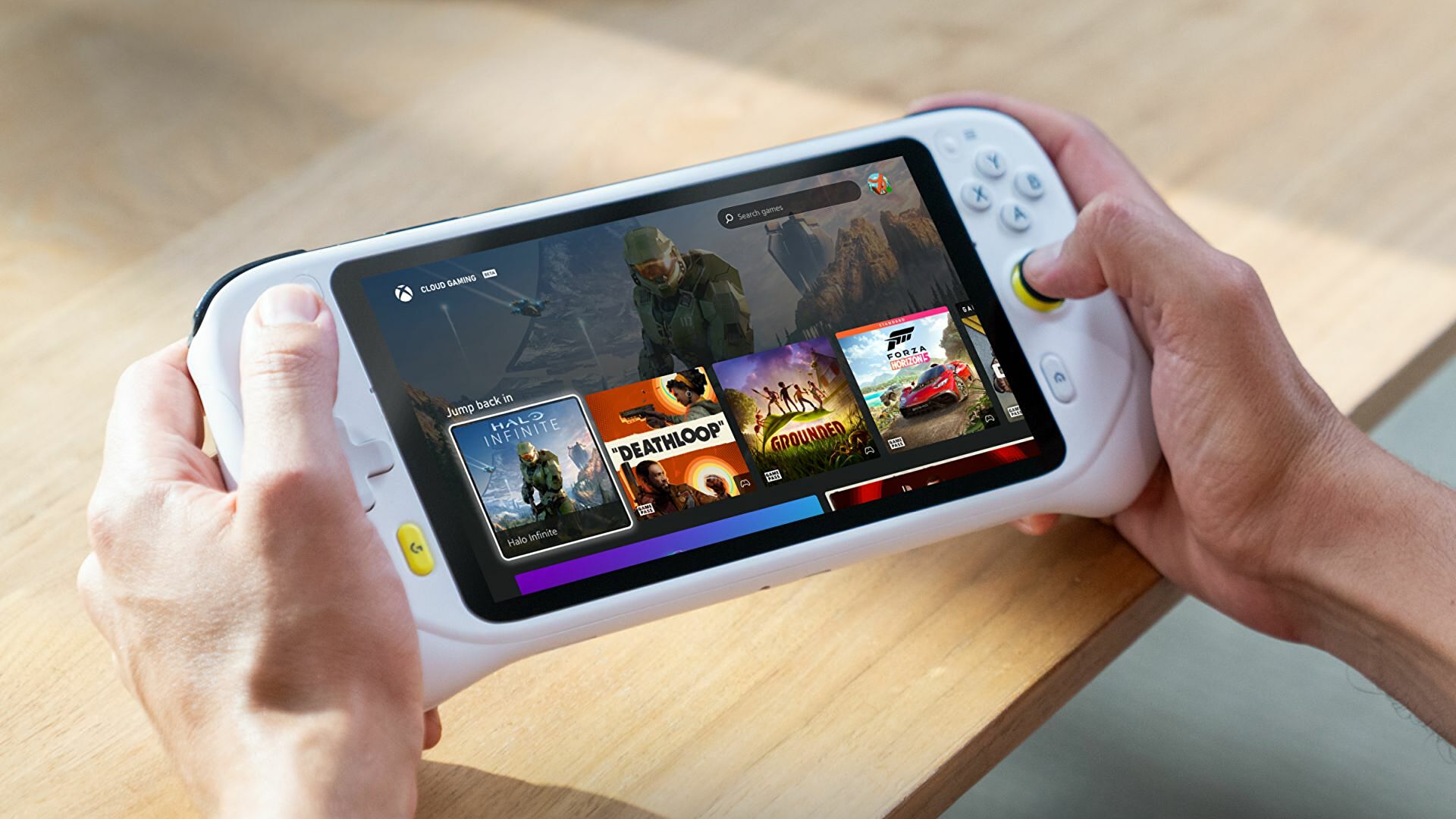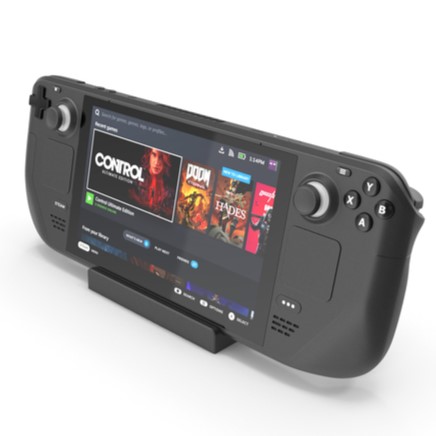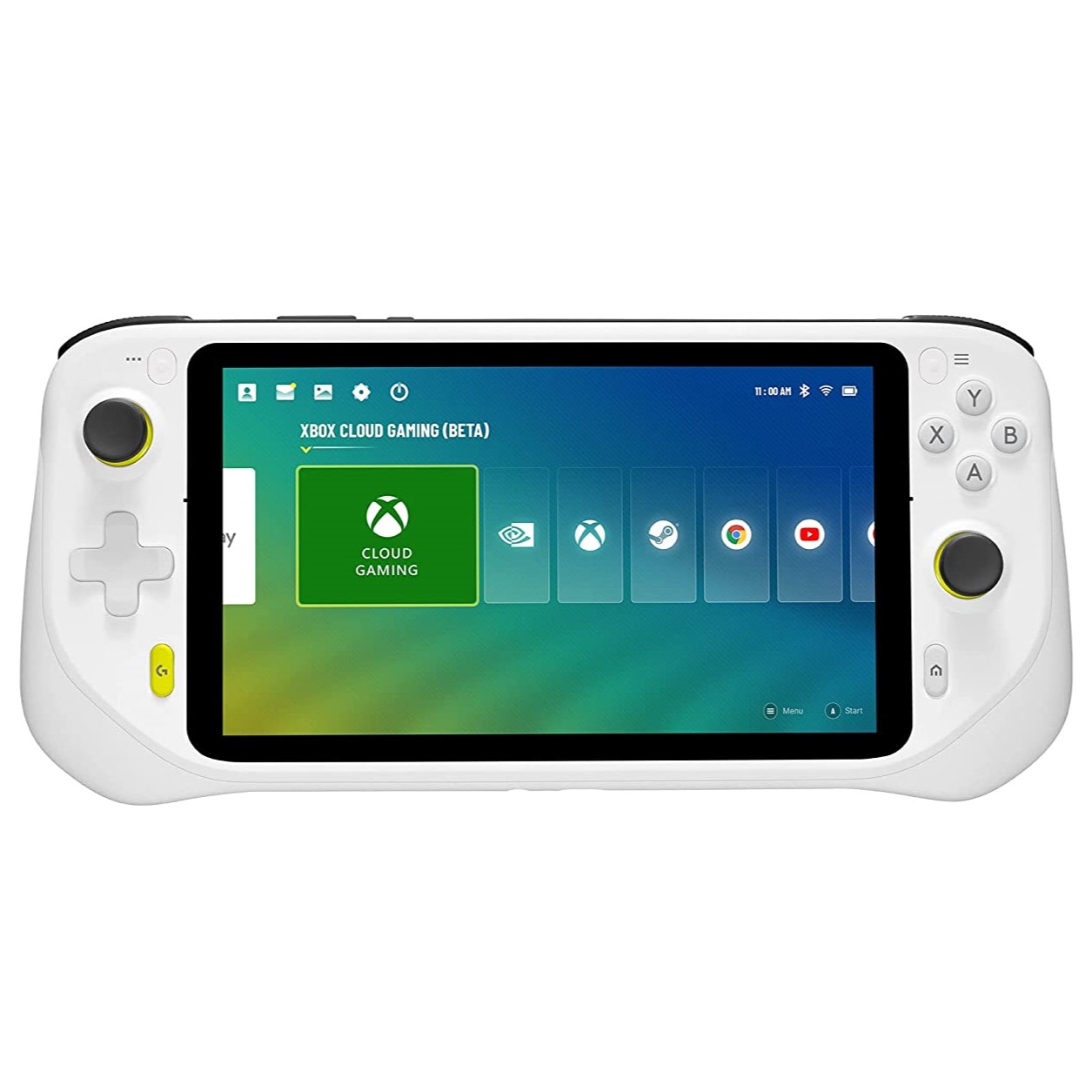Pass on Logitech's G Cloud and get a Steam Deck instead
For just $50 more, the Steam Deck offers significantly better value to gamers.
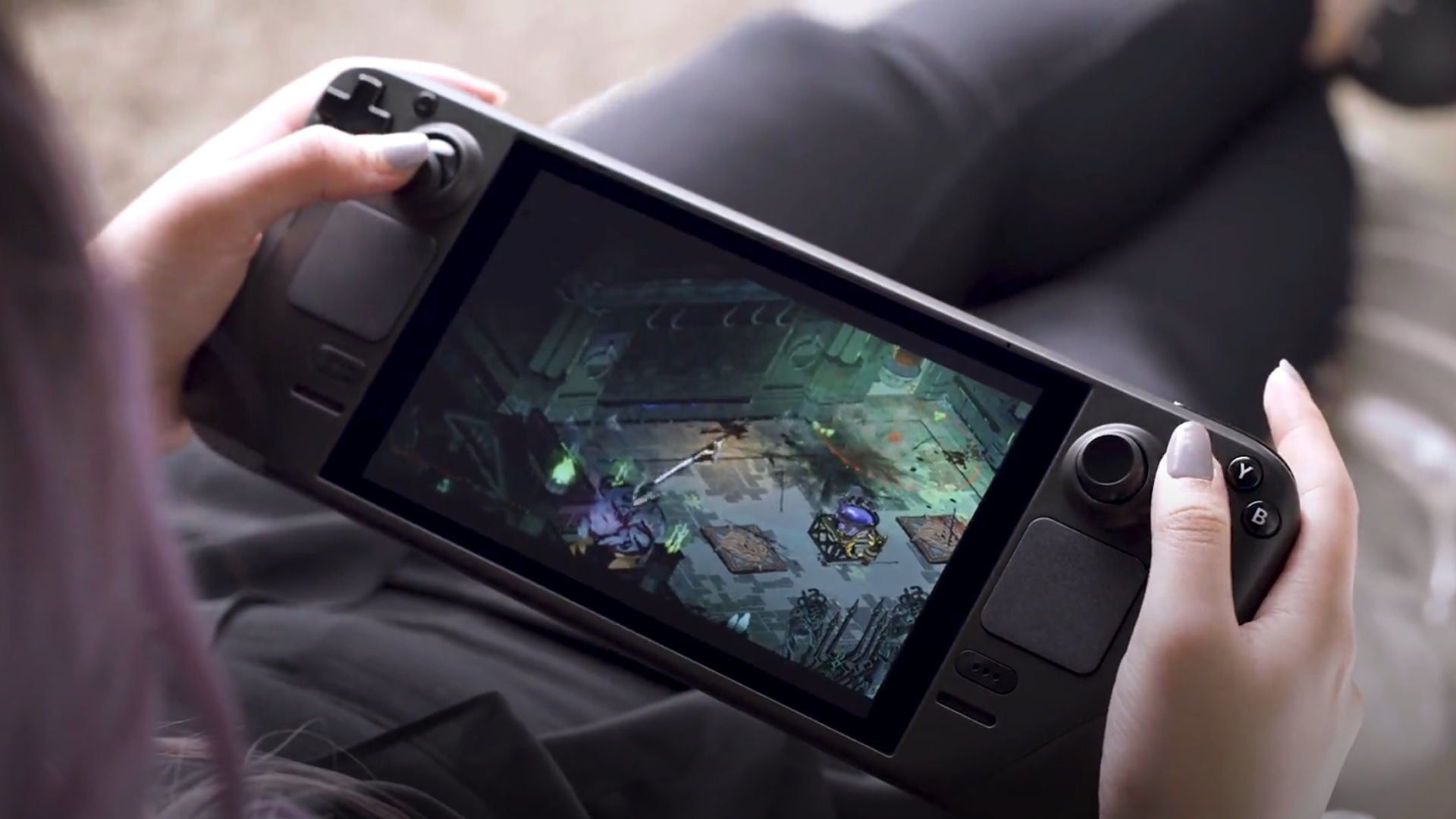
All the latest news, reviews, and guides for Windows and Xbox diehards.
You are now subscribed
Your newsletter sign-up was successful
Recently, computer peripherals and hardware manufacturer Logitech unveiled its G Cloud handheld that's slated to launch on Oct. 18 in the U.S. and Canada, with the device eventually expected to become available globally. Positioned as an advanced Android tablet that offers access to the full Google Play Store as well as game streaming services like Xbox Cloud Gaming, NVIDIA GeForce Now, and Google Stadia, the Logitech G Cloud seems like it could be one of the best devices for cloud gamers.
However, there's just one problem — and it's a big one. Logitech's G Cloud has an MSRP of $350 ($300 if you preorder), which is a painfully high cost for a device like this. That's only $50 less expensive than Valve's standard Steam Deck model, which has been lauded for its incredible versatility and value since it launched earlier this year. And even though the G Cloud does have some small advantages, these minor upsides don't outweigh the benefits you'd have available by getting a Deck instead.
The thing that gives the Steam Deck the upper hand over the G Cloud is its ability to play PC games natively with good performance thanks to its AMD RDNA 2 APU and 16GB of DDR5 memory, while also being fully compatible with the same streaming services you can use with Logitech's handheld. Having the option to buy games directly and play them natively is great even if you prefer playing over the cloud in most situations. For example, in scenarios where games are removed from libraries like the Xbox Game Pass games list and become unavailable to play with Xbox Cloud Gaming or other streaming services, you'll be able to get them on Steam and keep them forever.
The Steam Deck can play games both natively and via streaming, making it significantly more versatile.
Native gaming also gives you the opportunity to play without any of the input latency you'll inevitably experience while playing over the cloud, which is especially valuable for competitive multiplayer shooters, fast-paced action games, and platformers. Even though it's true that Microsoft, NVIDIA, and other providers have done a lot to reduce input lag as their streaming services have matured, the fact of the matter is that no cloud gaming experience will ever be as responsive as playing natively.
There's also the added benefit of being able to play many of your owned titles offline, which you simply won't be able to do with the Logitech G Cloud. Admittedly, there are very few times where we're not saturated with speedy Wi-Fi in the tech-filled world of today, but during power or ISP outages, the Steam Deck's offline capabilities will be incredibly useful.
Logitech's G Cloud does have a slightly sharper and brighter 1920x1080 450-nit panel compared to the Steam Deck's 1280x800 400-nit one, and Logitech's claim of a 12-hour max battery life surpasses the 6-8 hours you'll typically get playing on the cloud with the Deck. Even so, these resolution differences aren't that noticeable on the 7-inch displays these devices are using, and for most gamers, I think the lower battery life will be worth dealing with in exchange for the option of native gameplay.
Some have argued that the availability of millions of Google Play Store apps makes the G Cloud worth its steep price (ironically, Google Play licensing costs no doubt contributed to it), but people that care about Android apps that much likely have a smartphone they use to access them already and would probably be better served by a more affordable option like the Razer Kishi V2 mobile controller or the $200 AYN Odin Lite handheld. Some may find the G Cloud's all-in-one functionality useful, but I doubt many will.
All the latest news, reviews, and guides for Windows and Xbox diehards.
Ultimately, you should just get a Steam Deck if you're looking for a dedicated gaming handheld. Not only is it fully compatible with every cloud gaming service you'll be able to use with the G Cloud, but for just $50 more, you also get the option to play Steam games natively, too. Even if you were to preorder the G Cloud and take advantage of the $50 discount, I still think the Steam Deck stands tall as the better device for most gamers.

Brendan Lowry is a Windows Central writer and Oakland University graduate with a burning passion for video games, of which he's been an avid fan since childhood. He's been writing for Team WC since the summer of 2017, and you'll find him doing news, editorials, reviews, and general coverage on everything gaming, Xbox, and Windows PC. His favorite game of all time is probably NieR: Automata, though Elden Ring, Fallout: New Vegas, and Team Fortress 2 are in the running, too. When he's not writing or gaming, there's a good chance he's either watching an interesting new movie or TV show or actually going outside for once. Follow him on X (Twitter).
